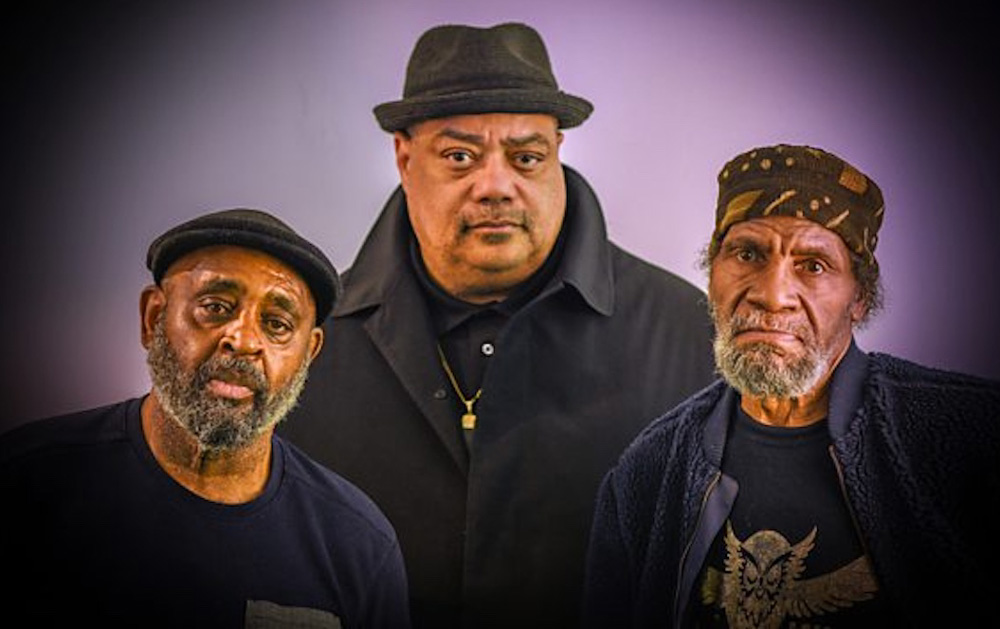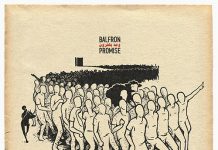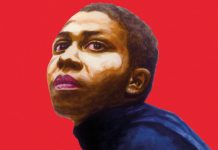The American band The Last Poets has been on the scene for over fifty years. In the early days, they could be described as pioneers of early rap, but thanks to the album “Africanism”, their voice has not faded even today.

Six years ago they released the album “Understand What Black Is”, which reminded the band with a strong voice. At that time we already ranked this album among the best records of the year and that’s why we won’t bypass their new release in the “Album of the Week” section.
Artistic diversity
The Last Poets were formed on May 19, 1968 in New York’s Marcus Garvey Park on the birthday of Malcolm X, who was also one of their founding members. The other important member of the group was Jalal Mansur Nuriddin, who died in 2018 at the age of 74.
Since 1997, the group has had a turbulent time, going through various changes, never caring for revolutionary symbolism. Their work was built on the artistic diversity and identity of multiple soloists consisting of Arab and African immigrants. On recent albums, Umar Bin Hassan, Abiodun Oyewole and Suliaman El-Hadi have donned the mantle of “the last poets”.
“The Last Poets’ mission was to pull the people out of the rubble o f their lives,”
A spectacular return
In 2018 the two remaining Last Poets, Abiodun Oyewole and Umar Bin Hassan, embarked on another memorable return with an album – Understand What Black Is – that earned favourable comparison with their seminal works of the past, whilst showcasing their undimmed passion and lyrical brilliance in an entirely new setting – that of reggae music. Tracks like Rain Of Terror (“America is a terrorist”) and How Many Bullets demonstrated that they’d lost none of their fire or anger, and their essential raison d’etre remained the same.
“They knew, deep down that poetry could save the people – that if black people could see and hear themselves and their struggles through the spoken word, they would be moved to change,” write biographer Kim Green.
Umar is originally from Akron, Ohio, but had arrived in Harlem in early 1969 after seeing Abiodun and the other Last Poets at a Black Arts Festival in Cleveland. That’s where he first witnessed what Amiri Baraka once called “the rhythmic animation of word, poem, image as word-music” – a creative force that redefined the concept of performance poetry and stripped it bare until it became a howl of rage, hurt and anger, saved from destruction by mockery and love for humanity. When Umar’s father, who was a musician, was jailed for armed robbery he took to the streets from an early age where he shined shoes and raised whatever money he could to help feed his eight brothers and sisters. By the time he saw the Last Poets he’d joined the Black United Front and was ready to join the struggle.
Once in Harlem, Abiodun asked him what he’d learnt in the few weeks since he’d got there. “Niggers are scared of revolution,” Umar replied. “Write it down” urged Abiodun. That poem still gives off searing heat more than fifty years later. In Umar’s own words, “it became a prayer, a call to arms, a spiritual pond to bathe and cleanse in because niggers are not just vile and disgusting and shiftless. Niggers are human beings lost in someone else’s system of values and morals.”
Revolutionary rhetoric
And there you have it. It’s not just race or religion that hold us back, but an economic system that keeps millions in poverty and living in fear – a system born from political choice and that’s now become so entrenched, so bloated on its own success that it’s put mankind in mortal danger. It was many black people’s acceptance of the status quo that inspired Just Because, which like Niggers Are Scared Of Revolution, was included on that seminal first album. Along with their revolutionary rhetoric, it was the Last Poets’ use of the “n word” that proved so shocking, but it would be wrong to suggest that they reclaimed it, since it never belonged to black people in the first place. There’s never any hiding place when it comes to the Last Poets. They use words like weapons, and that force all who listen to decide who they are and where they stand.
Umar’s two remaining tracks find him revisiting poems first unleashed on the Poets’ second album This Is Madness! Abiodun had left for North Carolina by then where he became more deeply enmeshed in revolutionary activities and spent almost four years in jail for armed robbery after attempting to seize funds related to the Klu Klux Klan. Meanwhile, the 21 year old Umar was squatting in Brooklyn and had developed close ties with the Dar-ul Islam Movement. A longing for purity and time-honoured spiritual values underpins Related to What, whilst This Is Madness is a call for freedom “by any means necessary,” and that paints a feverish landscape peopled by prominent black leaders but that quickly descends into chaos. “All my dreams have been turned into psychedelic nightmares,” he wails, over a groove now powered by Tony Allen’s ferocious drumming.
Recording
Those sessions lasted just two days, and we can only imagine the atmosphere in that room as the hip hop godfathers exchanged the conga drums of Harlem for the explosive sounds of authentic Afrobeat. Once they’d finished, the recordings and momentum returned to Prince Fatty’s studio, since relocated from Brighton to SE London. This was stage three of the project, and who better to fill out the rhythm tracks than two key musicians from Seun Anikulapo Kuti’s band Egypt 80? Enter guitarist Akinola Adio Oyebola and bassist Kunle Justice, who upon hearing Allen’s trademark grooves exclaimed, “oh, the Father… we are home!”
Such joy and enthusiasm resulted in the perfect fusion of Nigerian Afrobeat and revolutionary poetry, but the vision for the album wasn’t yet complete. He wanted to create a new kind of soundscape – one that reunited the Poets with the progressive jazz movement they’d once shared with musicians like Sun Ra and Pharoah Sanders. It was at that point they recruited exciting jazz talents based in the UK like Joe Armon Jones from Mercury Prize winners Ezra Collective, also widely acclaimed producer/remixer and keyboard player Kaidi Tatham, who’s been likened to Herbie Hancock, and British jazz legend Courtney Pine, whose genius on the saxophone and influence on the UK’s now vibrant jazz scene is beyond question.
The instrumental tracks on Africanism are in many ways as revelatory and exciting as the Last Poets’ own. It’s important to remember that the kaleidoscope of styles and influences we’re presented with here aren’t the result of sampling but were played “live” by musicians responding to sounds made by other musicians. That’s where the magic comes from, aided by Prince Fatty’s peerless mixing which allows us to hear everything with such clarity. Music fans today have grown accustomed to listening to all kinds of different genres. Their tastes have never been so broad or all-encompassing, and so the music on this new Last Poets’ album is as groundbreaking as their lyrics, and perfectly suited to the era that we’re now living in.
NMR (photo: press The Last Poets)
















